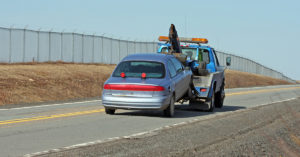
Cars, trucks, motorcycles, RVs or boats, they’re all expensive. It’s unusual that these purchases are made in cash. Whether buying a new or used vehicle, most people choose to finance the purchase and make specified payments over a designated period of time. Financing can be arranged in two different ways.
Dealer-Arranged Loan
 Many times consumers have the dealer arrange for financing. The dealer’s finance manager, or “F&I”, will collect your personal information and forward it to prospective auto lenders. If the lender chooses to finance your loan, an interest rate will be quoted to the dealer to finance the loan for you. Once the vehicle purchase is complete, the dealer-arranged loan may then be sold to the lender. At this point, the dealer is paid for the vehicle, while the lender assumes the loan, and collects monthly payments from you for the agreed upon length of the loan. This combined sale and financing agreement is called a Retail Installment Sales Contract. Often the dealer will make an undisclosed profit on the difference or spread between the rate quoted to you and the actual, lower rate at which the bank would extend credit. A dealer-arranged finance transaction is also called Indirect Lending.
Many times consumers have the dealer arrange for financing. The dealer’s finance manager, or “F&I”, will collect your personal information and forward it to prospective auto lenders. If the lender chooses to finance your loan, an interest rate will be quoted to the dealer to finance the loan for you. Once the vehicle purchase is complete, the dealer-arranged loan may then be sold to the lender. At this point, the dealer is paid for the vehicle, while the lender assumes the loan, and collects monthly payments from you for the agreed upon length of the loan. This combined sale and financing agreement is called a Retail Installment Sales Contract. Often the dealer will make an undisclosed profit on the difference or spread between the rate quoted to you and the actual, lower rate at which the bank would extend credit. A dealer-arranged finance transaction is also called Indirect Lending.
Direct Loan
 A direct loan is where the consumer goes directly to a bank, credit union or finance company to apply for a loan. Many times these lenders can “pre-approve” you, and quote an interest rate and term for the total amount you want to borrow. The lender will give you a commitment letter that can be taken to the dealership to purchase the vehicle. Once the dealer is paid for the vehicle, monthly payments will be made directly to the bank, credit union or finance company for the term of the loan. The banks sometimes call this Direct Lending.
A direct loan is where the consumer goes directly to a bank, credit union or finance company to apply for a loan. Many times these lenders can “pre-approve” you, and quote an interest rate and term for the total amount you want to borrow. The lender will give you a commitment letter that can be taken to the dealership to purchase the vehicle. Once the dealer is paid for the vehicle, monthly payments will be made directly to the bank, credit union or finance company for the term of the loan. The banks sometimes call this Direct Lending.
Repossession
 Whether a consumer has arranged for a direct loan or a dealer-arranged loan, there are terms specified in the loan agreement which address default and the option for the lender to repossess the vehicle. Whether a consumer falls behind on payments or not, the lender must follow a number of rules before and after a vehicle is repossessed. If any rules have been overlooked, the consumer may take legal action against the bank, credit union or finance company.
Whether a consumer has arranged for a direct loan or a dealer-arranged loan, there are terms specified in the loan agreement which address default and the option for the lender to repossess the vehicle. Whether a consumer falls behind on payments or not, the lender must follow a number of rules before and after a vehicle is repossessed. If any rules have been overlooked, the consumer may take legal action against the bank, credit union or finance company.
Seek a Free Legal Evaluation
 Flitter Milz is a nationally recognized consumer protection law firm that represents victims of auto finance fraud and repossession. Contact Us for a free evaluation of whether your consumer rights have been violated, whether or not you fell behind on payments.
Flitter Milz is a nationally recognized consumer protection law firm that represents victims of auto finance fraud and repossession. Contact Us for a free evaluation of whether your consumer rights have been violated, whether or not you fell behind on payments.








